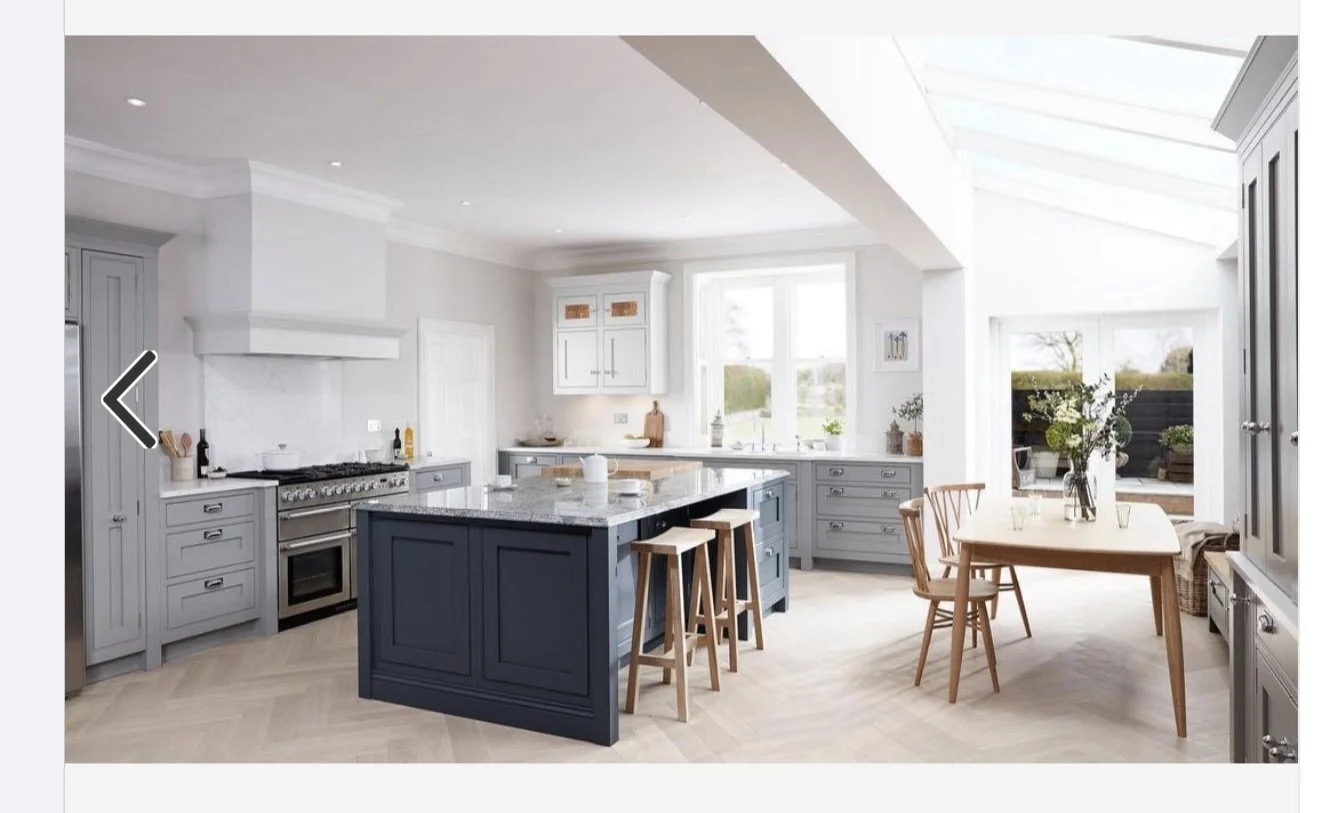Planning Your Home Renovation
Open plan Kitchen/Diner with skylight
Planning a Home Renovation: Steps to Achieve Your Dream Space
Embarking on a home renovation can be an exciting yet overwhelming endeavor. Whether you're modernising a single room or revamping your entire house, careful planning is essential to ensure the project runs smoothly, stays on budget, and delivers the results you envision. Here's a step-by-step guide to help you navigate the process effectively.
1. Define Your Goals
Start by clarifying why you're renovating. Is it to increase functionality, add value to your home, or simply update the aesthetics? Write down your objectives and consider the specific outcomes you want for each space.
Questions to ask:
What do I dislike about the current space?
What features or changes are most important to me?
How will this renovation improve my daily life?
2. Set a Budget
Your budget will shape the scope of your renovation. Be realistic about what you can afford and allocate funds for each aspect of the project. Don’t forget to include a contingency fund—typically 10-20% of the total budget—for unexpected expenses.
Tips for budgeting:
Research average costs for similar projects in your area.
Factor in permits, labor, materials, and design fees.
Prioritize your must-haves over optional features.
3. Establish a Timeline
Determine when you want the renovation to start and finish. Be realistic—delays can happen due to weather, supply chain issues, or unforeseen complications.
Consider:
How long each phase of the project will take.
Any personal or seasonal events to avoid during construction.
Buffer time for inspections and approvals.
4. Research and Hire Professionals
Unless it’s a small DIY project, you’ll likely need to hire professionals who have experience and a good reputation in completing similar projects.
Steps to finding the right team:
Ask for recommendations from friends, family, or online reviews.
Check if the contractor can provide design advice alongside their quotation for building work
Ensure the contractor understands your vision
5. Plan the Design
Work with your contractor to finalise the layout, style, and materials. This is where your ideas take shape.
Key tasks:
Create a mood board with inspiration images.
Choose materials that balance aesthetics, durability, and cost.
Ensure the design aligns with your home's structure and existing systems.
6. Secure Permits and Approvals
Check with your local authority to determine which permits you need for your renovation. You can also seek advice from your contractor. Failing to secure the right permits can lead to fines or complications when selling your home.
Steps:
Seek advice from your local authority and contractor
Schedule inspections as required
7. Prepare Your Home
Renovations can be disruptive. Plan how you’ll manage during the construction phase.
Preparation tips:
Declutter and protect furniture in the renovation area.
Create temporary spaces if kitchens or bathrooms are under construction.
Notify neighbors if construction noise will be significant.
8. Monitor the Progress
Stay involved throughout the project to ensure everything goes according to plan.
What to do:
Regularly communicate with your contractor or project manager.
Address any issues immediately to prevent delays.
9. Conduct a Final Walkthrough
Before signing off on the project, inspect the work to ensure it meets your expectations. Create a list of any issues that need resolving.
10. Enjoy Your New Space
Once the dust has settled and all final touches are complete, it’s time to move back in and enjoy your new space. Consider documenting the process and results — and maybe inspire others!
Final Thoughts
Planning a home renovation requires patience, organisation, and flexibility. By breaking the process into manageable steps and leaning on professional expertise, you can transform your vision into reality while minimising stress. Remember: the journey is just as important as the destination!

